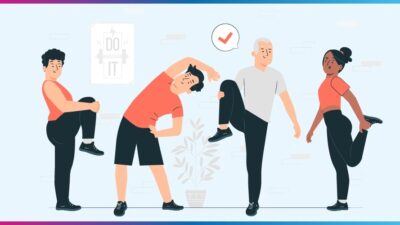Your immune system is your body’s personal defense force, working 24/7 to protect you from harmful invaders like bacteria, viruses, and toxins. In today’s world, maintaining a robust immune system is more important than ever. This comprehensive guide will walk you through everything you need to know about how your immune system works, what weakens it, and most importantly – how to strengthen it naturally through science-backed methods.
Table of Contents
Understanding Your Immune System: Your Body’s Defense Network
The immune system is a complex network of cells, tissues, and organs that work together to defend your body against harmful pathogens. It’s composed of two main components:
1. The Innate Immune System: Your First Line of Defense
This is your body’s rapid-response team that acts immediately when it detects an invader. Key features include:
- Physical barriers like skin and mucous membranes
- White blood cells (neutrophils, macrophages) that attack invaders
- Inflammatory response to isolate threats
2. The Adaptive Immune System: Your Specialized Defense Force
This sophisticated system develops over time and includes:
- T-cells and B-cells that target specific pathogens
- Antibody production for long-term immunity
- “Memory” of past infections for faster future responses
🔬 Did You Know? Your immune system can remember every germ it’s ever defeated, which is why you typically don’t get the same illness twice from the same virus.
Key Players in Your Immune System
| Component | Function | Why It Matters |
|---|---|---|
| White Blood Cells | Identify and destroy pathogens | First responders to infection |
| Lymph Nodes | Filter lymph fluid for harmful substances | Act as immune system checkpoints |
| Spleen | Filters blood and stores immune cells | Critical for fighting bloodstream infections |
| Bone Marrow | Produces all blood cells | Factory for your immune system cells |
| Thymus | Trains T-cells to fight infections | Essential for adaptive immunity |
| Gut Microbiome | Houses 70% of immune cells | Links diet directly to immune function |
Top 10 Immune-Weakening Factors You Should Avoid
- Chronic Stress: Elevates cortisol which suppresses immune function
- Sleep Deprivation: Reduces infection-fighting antibodies
- Poor Nutrition: Deficiencies in key vitamins impair immunity
- Sedentary Lifestyle: Lack of movement decreases immune surveillance
- Excessive Alcohol: Damages immune cells in the bloodstream
- Smoking: Destroys protective cilia in respiratory tract
- Obesity: Fat cells produce inflammatory chemicals
- Overuse of Antibiotics: Disrupts beneficial gut bacteria
- Dehydration: Impairs lymph flow and toxin removal
- Environmental Toxins: Pesticides and pollutants burden immunity
⚠️ Warning Signs of a Weakened Immune System:
- Frequent colds/illnesses (more than 2-3 per year)
- Slow healing wounds
- Persistent fatigue
- Recurring infections
- Digestive issues
7 Science-Backed Strategies to Boost Immunity
1. Optimize Your Diet for Immune Health
The right foods provide building blocks for immune cells:
- Vitamin C Powerhouses: Citrus fruits, bell peppers, broccoli
- Zinc Sources: Oysters, pumpkin seeds, lentils
- Vitamin D Foods: Fatty fish, egg yolks, fortified foods
- Probiotic-Rich Foods: Yogurt, kefir, sauerkraut
- Antioxidant Superfoods: Berries, dark leafy greens, nuts
2. Master the Art of Immune-Supportive Sleep
- Aim for 7-9 hours nightly
- Maintain consistent sleep/wake times
- Create a dark, cool sleeping environment
- Avoid screens 1 hour before bedtime
3. Implement Smart Exercise Habits
- Moderate exercise (30-45 mins daily) boosts immunity
- Yoga and tai chi reduce stress hormones
- Outdoor activity increases vitamin D production
4. Stress Management Techniques
- Daily meditation practice
- Deep breathing exercises
- Regular nature exposure
- Social connection with loved ones
5. Hydration for Immune Function
- Drink half your body weight in ounces daily
- Include herbal teas (ginger, echinacea)
- Limit dehydrating beverages (coffee, alcohol)
6. Immune-Supportive Supplements
Always consult your doctor before starting supplements
- Vitamin D3 (especially in winter months)
- Zinc (short-term use during illness)
- Elderberry extract (for viral protection)
- Medicinal mushrooms (reishi, chaga)
7. Lifestyle Immunity Boosters
- Regular hand washing (20 seconds with soap)
- Maintaining healthy weight
- Staying up-to-date on vaccinations
- Avoiding unnecessary antibiotics
FAQs About Immune Health
Q: Can you really “boost” your immune system?
A: While you can’t supercharge it overnight, you can optimize immune function through consistent healthy habits that support its natural processes.
Q: How long does it take to strengthen immunity?
A: Most immune-supporting strategies show benefits within 2-3 months of consistent practice, though some effects (like improved gut microbiome) may take longer.
Q: Are immune-boosting supplements worth it?
A: Some supplements can help fill nutritional gaps, but they work best when combined with a healthy diet and lifestyle. Food sources should always come first.
Q: Can exercise weaken immunity?
A: Moderate exercise enhances immunity, but prolonged intense workouts without proper recovery can temporarily suppress immune function.
Q: How does age affect immunity?
A: Immune function naturally declines with age (immunosenescence), making healthy habits even more crucial as we get older.



